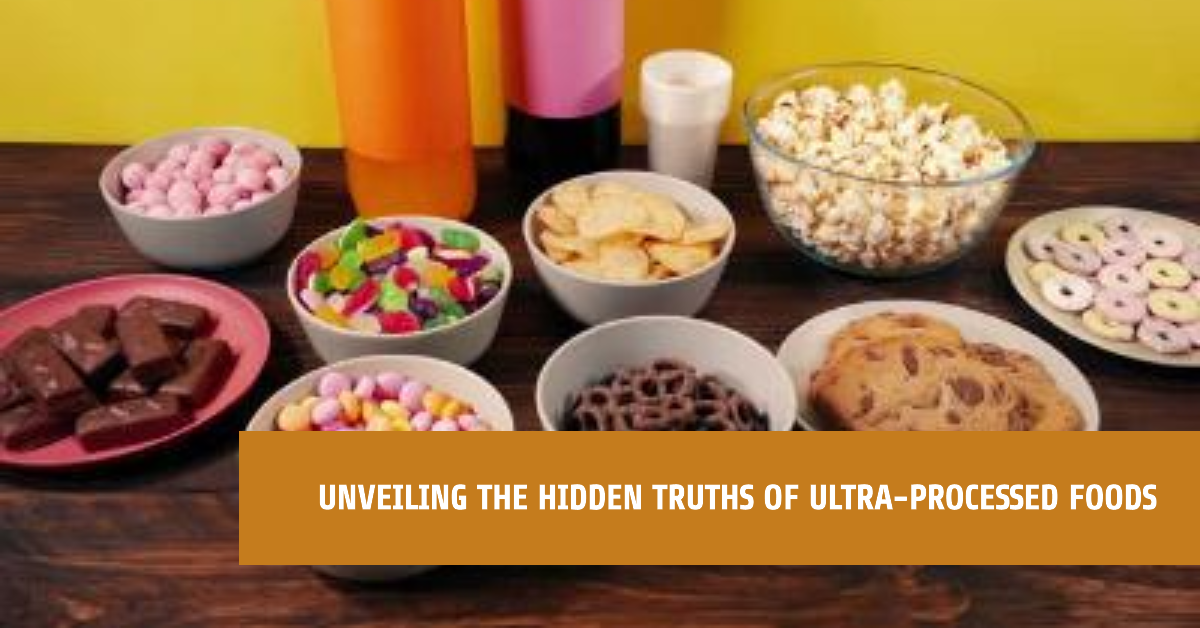15 Surprising Secrets About Ultra-Processed Foods
In a world dominated by convenience, ultra-processed foods have become a staple in many diets. But do you really know what's hidden in those seemingly innocent packages? Join us as we unveil 15 surprising secrets about ultra-processed foods that might just change the way you look at your grocery list.

In our hectic lives today, we often prioritize convenience over making healthy food choices. As a result, many of us turn to ultra-processed foods as a quick and easy solution to our daily meals. These foods, often loaded with additives, preservatives, and artificial flavors, have become a significant part of modern diets. But do we truly understand what we're actually eating and how it affects our bodies?
In this blog, we're going to dive deep into the world of ultra-processed foods and uncover 15 surprising secrets that might just make you reconsider your food choices.
Ultra-processed foods Go Beyond the Obvious
When we think of ultra-processed foods, images of potato chips, sugary cereals, and microwaveable dinners often come to mind. However, the truth is that they can be found in many unexpected places, from salad dressings to canned soups. These foods aren't limited to snacks and fast food; they infiltrate our daily meals more than we realize.
The Hidden World of Food Additives
One of the most surprising secrets about ultra-processed foods is the extensive use of food additives. These include artificial colors, flavors, and sweeteners, as well as various chemical preservatives. These additives are used not just to enhance taste but also to extend shelf life, making them more appealing to both manufacturers and consumers.
Excessive Sugar, Everywhere
Hidden sugars are a major concern in ultra-processed foods. You'll often find added sugars lurking in products you wouldn't expect, like ketchup and salad dressings. This excessive sugar intake is linked to various health issues, including obesity and type 2 diabetes.
Mysterious Ingredient Lists
Take a closer look at the ingredient list of an ultra-processed food item, and you'll likely find a string of unpronounceable substances. Deciphering these lists can be challenging, and many of us are left in the dark about what we're actually consuming.
Highly Engineered for Addiction
The food industry invests heavily in research to create products that are tasty and addictive. They use the perfect combination of sugar, salt, and fat to keep you coming back for more, making it difficult to resist the temptation of ultra-processed foods.
The Influence of the Food Industry
The food industry wields significant influence over our food choices through marketing and lobbying efforts. Their goal is to keep us buying their products, often at the expense of our health.
Reduced Nutritional Value
When they make ultra-processed foods, they usually take away the good stuff that's naturally in them. The result is products that are calorie-dense but nutrient-poor, contributing to malnutrition even in those who appear well-fed.
The Rise of Chronic Diseases
The consumption of ultra-processed foods is closely linked to the rise in chronic diseases such as heart disease, hypertension, and certain types of cancer. These foods often contain unhealthy fats and excessive sodium, which can have devastating effects on our health.
Misleading Food Labels
Food labels can be misleading, making it challenging for consumers to make informed choices. Phrases like "natural" and "low-fat" may not reflect the true nutritional content of the product.
The Impact on Children's Health
Children are particularly vulnerable to the effects of ultra-processed foods. These foods can shape their taste preferences from a young age, making it harder for them to develop a taste for whole, unprocessed foods.
The Environmental Cost
The production and packaging of ultra-processed foods have a significant environmental impact, contributing to issues like plastic pollution and greenhouse gas emissions.
The Convenience Factor
One of the most significant reasons people turn to ultra-processed foods is convenience. Our busy lives often leave us with little time to prepare nutritious meals from scratch, and the food industry capitalizes on this by offering quick and easy solutions.
The Cost of Cheap Food
Ultra-processed foods are often cheaper than fresh, whole foods. This cost advantage can make it challenging for people on a tight budget to prioritize healthy eating.
The Need for Food Education
Understanding the pitfalls of ultra-processed foods is crucial. Education about nutrition and food labels can empower individuals to make healthier choices for themselves and their families.
The Power of Home Cooking
Ultimately, one of the best ways to break free from the grip of ultra-processed foods is to cook at home. By preparing meals from fresh, whole ingredients, you gain control over what goes into your food and, by extension, your body.
In conclusion, the world of ultra-processed foods is filled with surprises, many of which are cause for concern. While they offer convenience, they often come at a significant cost to our health and the environment. It's essential to be mindful of what we consume, read food labels critically, and prioritize whole, unprocessed foods whenever possible. By doing so, we can take control of our diets and make choices that promote our long-term well-being.
So, the next time you reach for that bag of chips or a ready-made meal, remember these surprising secrets about ultra-processed foods and consider whether there might be a healthier, more nutritious alternative. In the future, your body will appreciate these choices.










